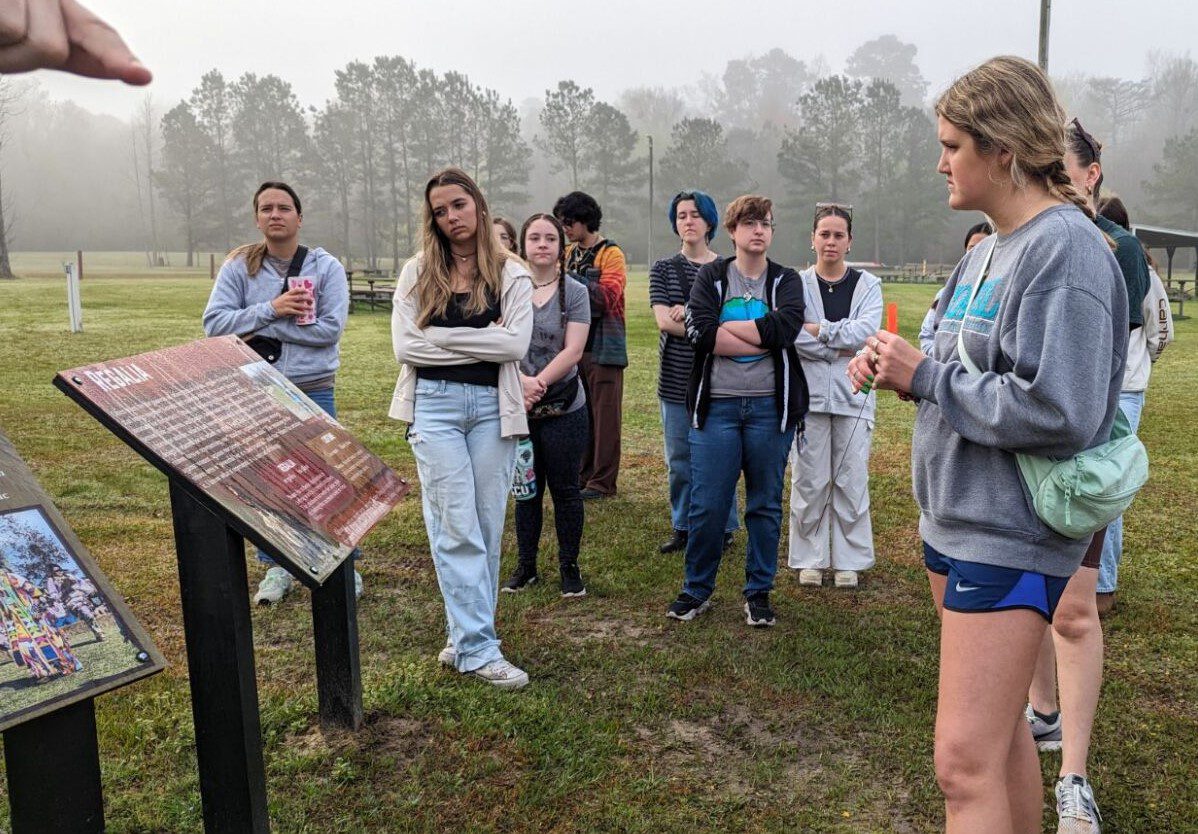Coastal Carolina students and professors in Anthropology, Interdisciplinary Studies, and the Master of Liberal Arts programs are collaborating with the Waccamaw Indian People on a new public cultural and traditional ecological interpretive trail at the Waccamaw tribal grounds in Aynor, South Carolina. The trail will have its official grand opening on Tuesday, April 16, 3:00 – 5:00 p.m. SC Humanities supported this project with a Mini Grant.
The “Native Heritage Interpretive Trail” includes an official South Carolina Historical Marker as well as seven other panels featuring elements of traditional Waccamaw Indian People life and culture. The interpretive exhibit provides information about the history of the Waccamaw in our region going back over 10,000 years, traditional farming and foodways, native flora and fauna, and prehistoric practices and dwellings. Students at Coastal Carolina University recently worked with tribal members to gather oral histories, select placements for the exhibit panels, and refine their research.
The exhibit will be open to the public on the Tribal Grounds and accessible online via a virtual experience, which is available here: https://waccamawpastpresentfuture.com/index.php/interpretive-trail/.
The grand opening event will take place at the Waccamaw Tribal Grounds, located at 591 Bluewater Road, Aynor, SC 29511, on Tuesday, April 16, starting at 3:00 p.m. A reception will follow the event.
The Waccamaw Indian People of Conway, South Carolina, are the descendants of a group of people who lived and farmed in the area of South Carolina now known as Dog Bluff. They were the first tribe in the State of South Carolina to obtain official recognition from the South Carolina Office of Vital Statistics. Additionally, the Waccamaw gained approval from the Governor’s Minority Affairs Ad Hoc Committee on Indian Recognition as an Indian Tribe as defined in the State of South Carolina. Learn more: https://www.waccamaw.org/.
The mission of SC Humanities is to enrich the cultural and intellectual lives of all South Carolinians. Established in 1973, this 501(c)3 organization is governed by a volunteer Board of Directors comprised of community leaders from throughout the state. It presents and supports literary initiatives, lectures, exhibits, festivals, publications, oral history projects, videos, and other humanities-based experiences that directly or indirectly reach more than 250,000 citizens annually. South Carolina Humanities receives funding from the National Endowment for the Humanities as well as corporate, foundation and individual donors. The National Endowment for the Humanities: Democracy demands wisdom.
